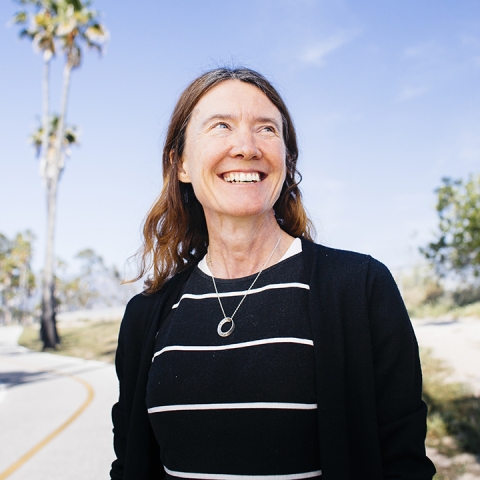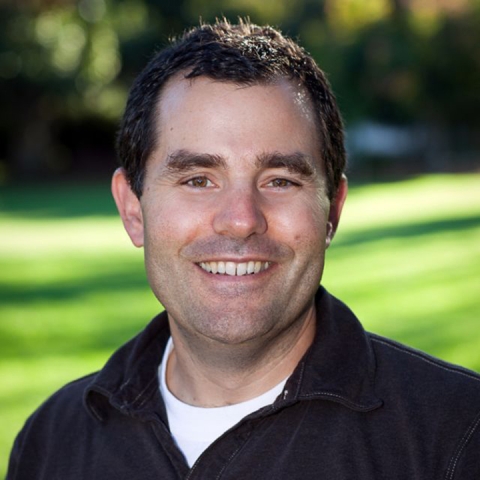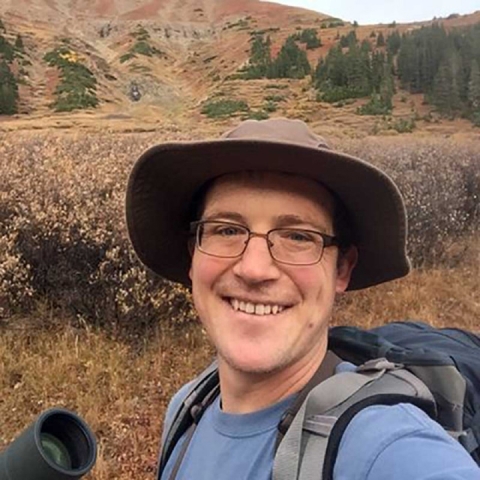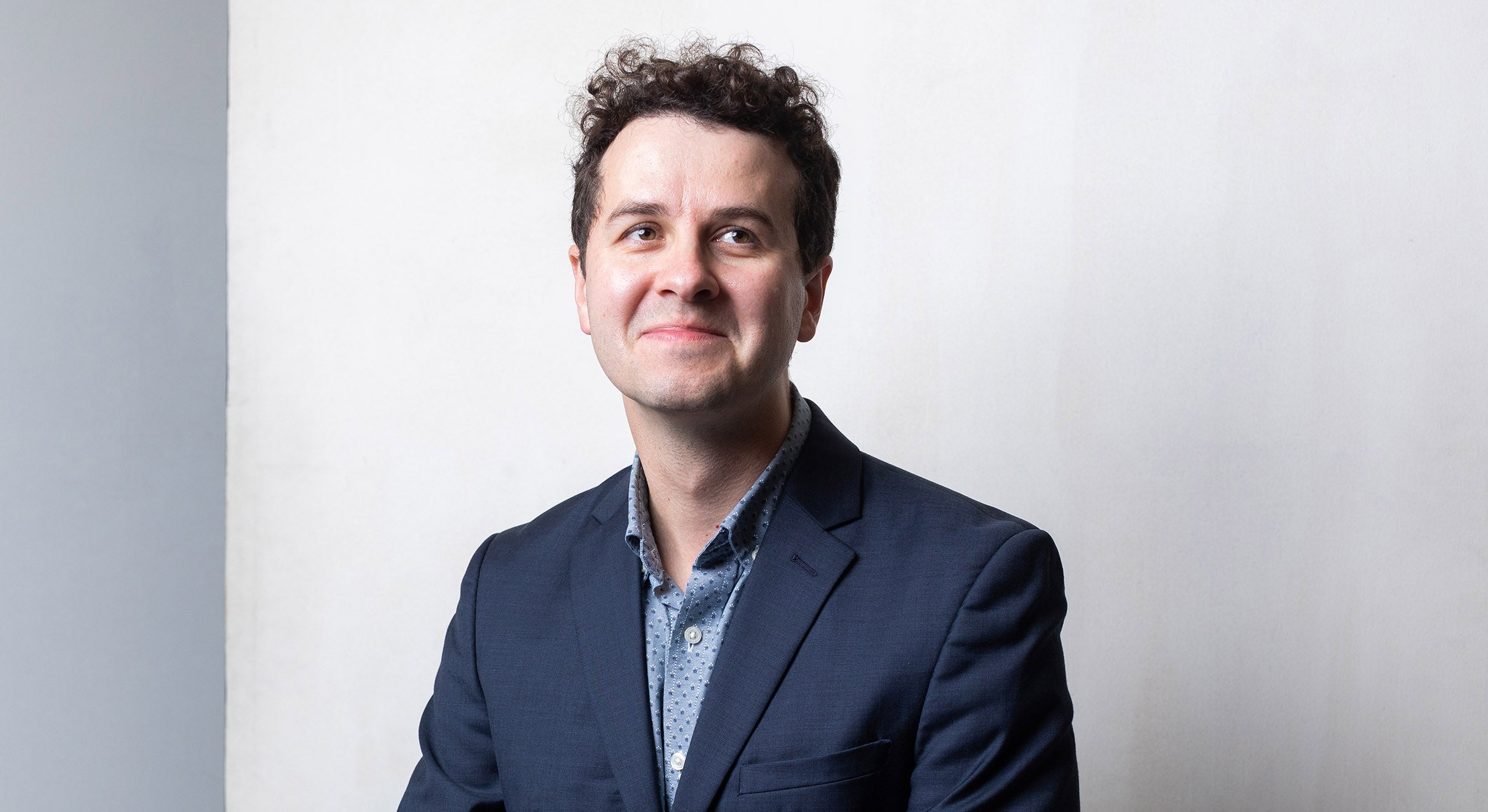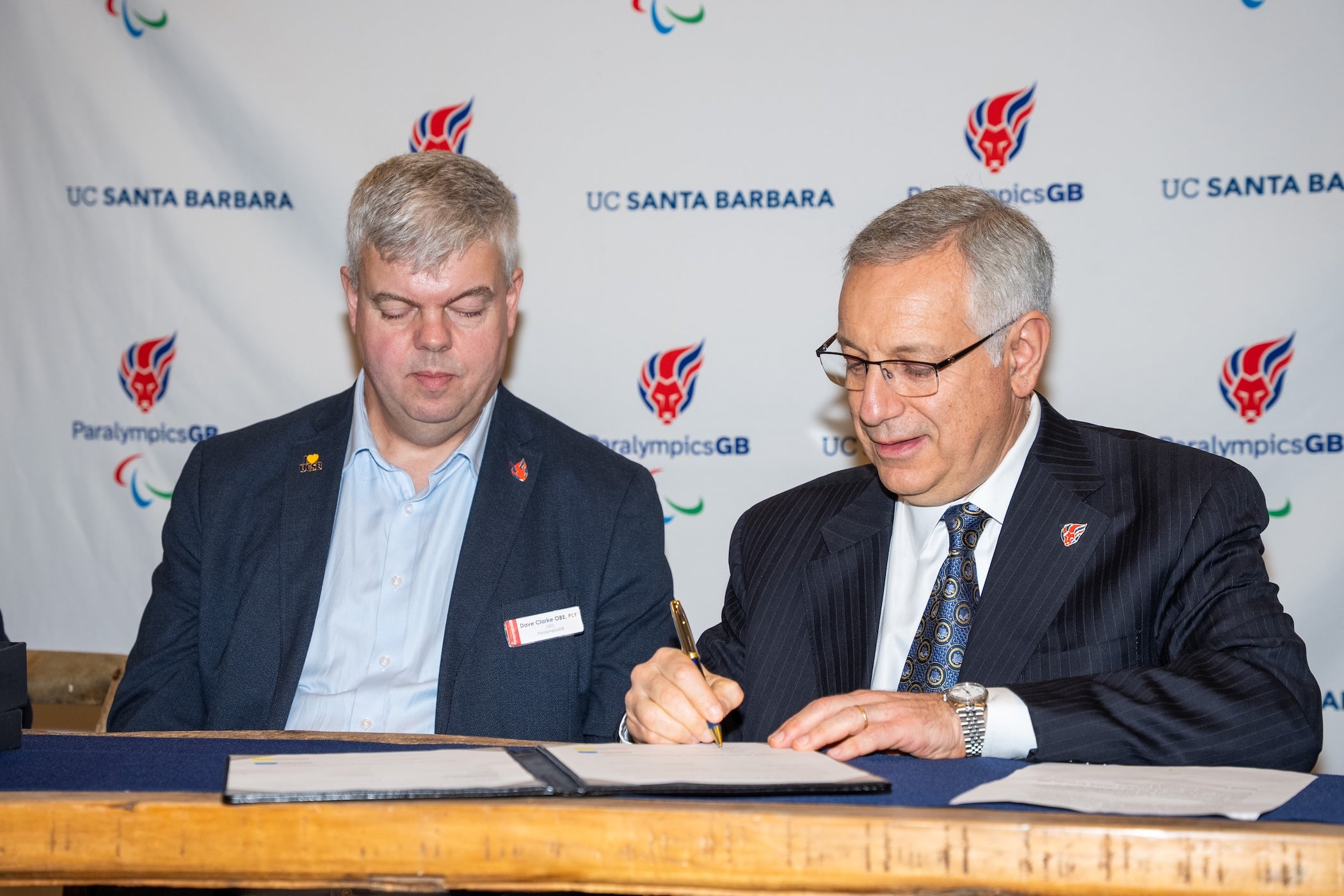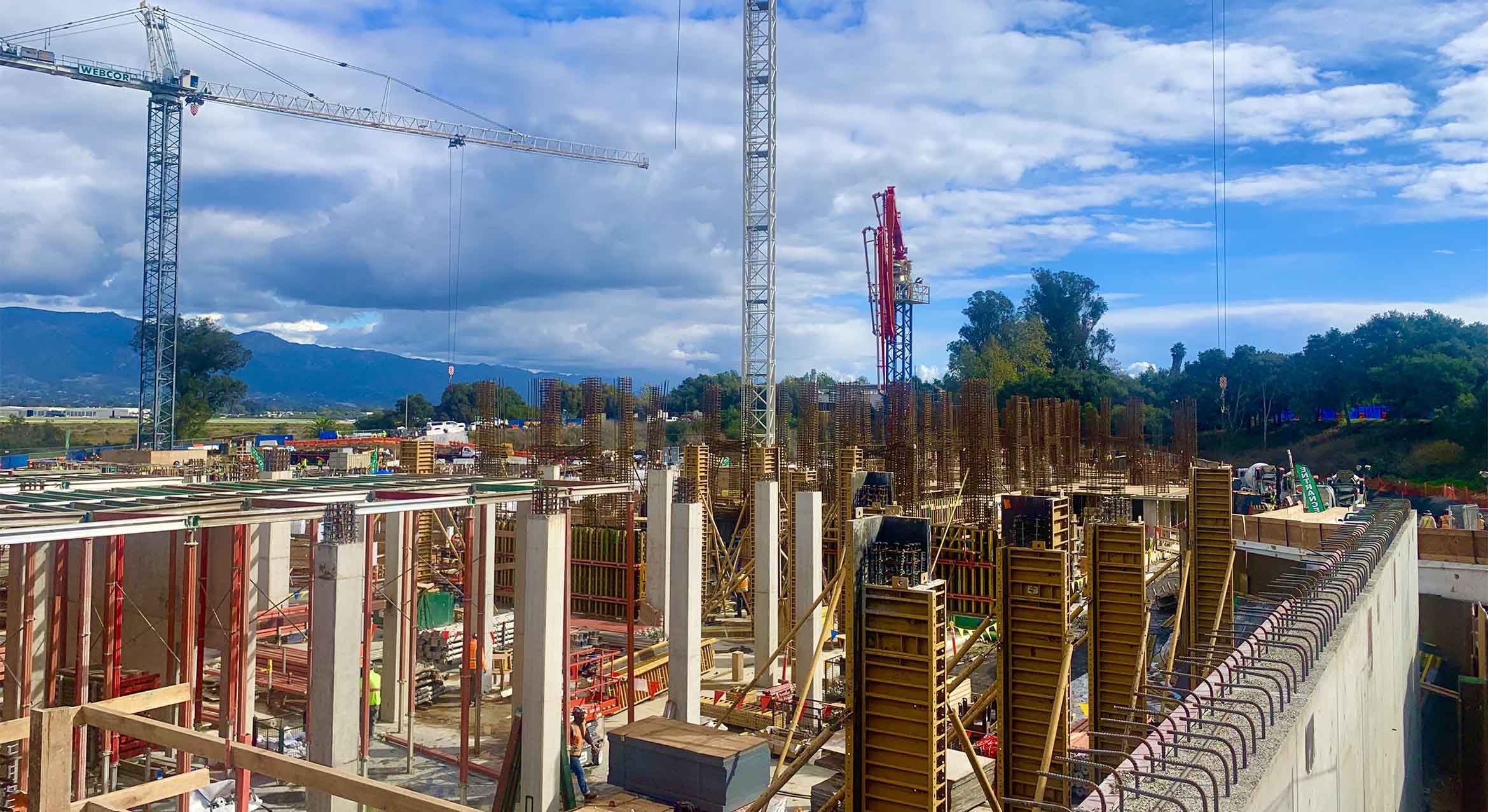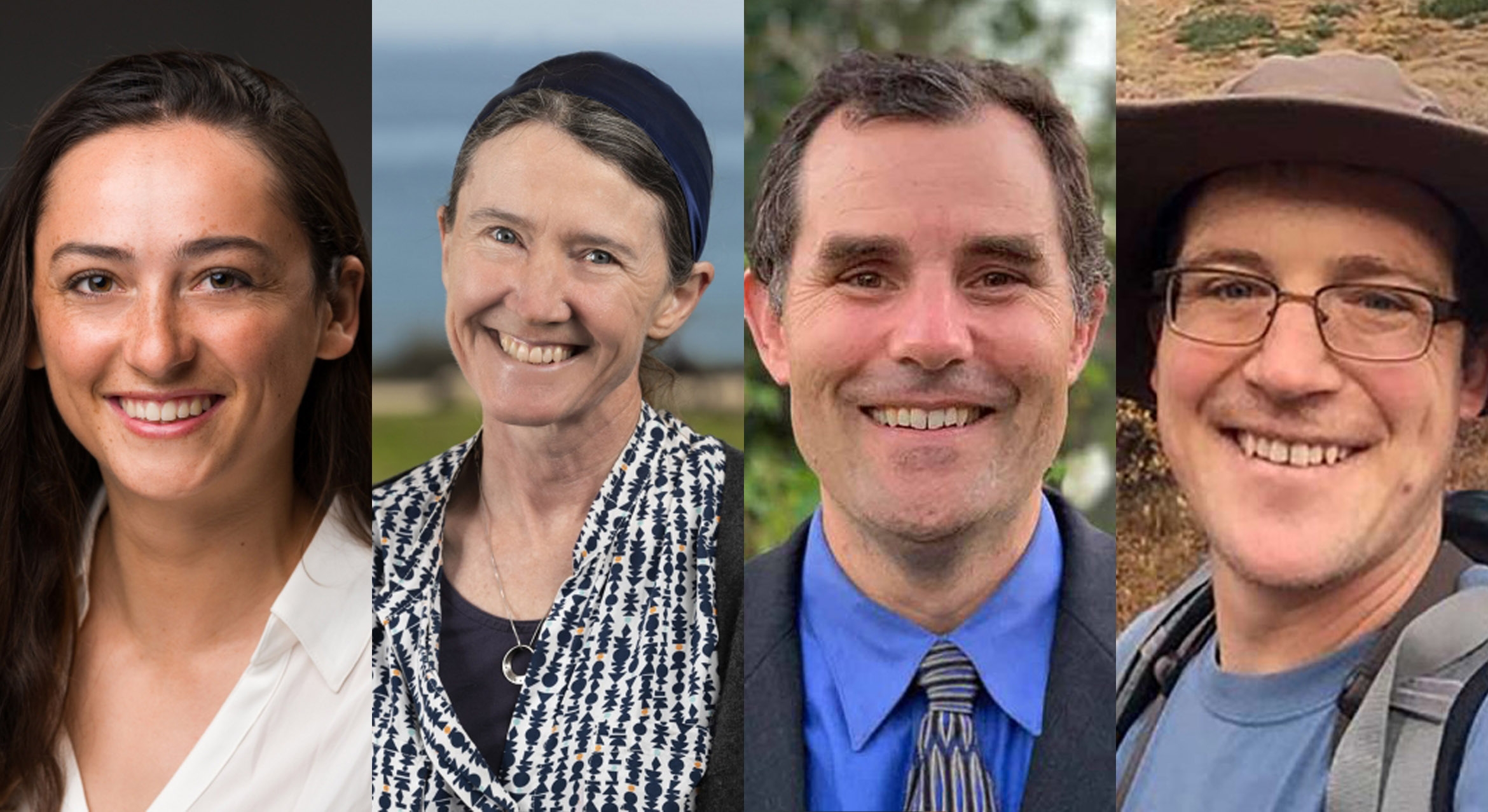
Two UC Santa Barbara faculty members have been elected as fellows of the American Geophysical Union (AGU), joining a distinguished group of 54 individuals in the 2024 Class of Fellows. Professor Naomi Tague, from the Bren School of Environmental Science & Management, studies ecohydrology, exploring how water, ecosystems and climate interact. Earth science Professor David Valentine has dedicated his career to studying the interactions of chemicals and microorganisms in diverse environments.
AGU, the world's largest Earth and space science association, annually honors a select number of individuals who have made exceptional contributions to the field. Since its inception in 1962, less than 0.1% of the union’s members have been selected as fellows each year.
Tague and Valentine were not the only researchers at UCSB recognized by the AGU this year. Biologist Leander Anderegg, an assistant professor in the Department of Ecology, Evolution, and Marine Biology, received an Early Career Award from the Global Change section of AGU. And Bren doctoral student Anna Boser was awarded the AGU Science for Solutions Award.
AGU Fellows
“While it comes as no surprise to their campus colleagues and students, it is a truly outstanding professional achievement for Professors Tague and Valentine to have been selected as 2024 Fellows,” said Professor Kelly Caylor, associate vice chancellor for research. “Their selection not only showcases the university's world-class research but also strengthens our campus’s ability to attract top talent and inspire future generations of scientists.”
“I am deeply honored to be selected as an American Geophysical Union Fellow,” said Tague, who studies how changes in land use and climate can affect hydrology and ecosystem processes. “AGU brings together the scientists who study water, climate, ecosystems, snow and geology — revealing this system’s complexity and its beauty, and offering the science we need to live sustainably in our environment.”
Tague works to design, build and use earth system models not just for prediction, but also for hypothesis testing: to understand how our rivers, forests, grasslands and unseen subsurface are influenced by climate and people. Throughout her career, Tague has seen earth system models as tools for integration — a way to bring together the work of field and experimental scientists. She is one of the principal developers of the Regional Hydro-Ecologic Simulation System (RHESSys), an integrated model of spatially distributed carbon, water and nitrogen cycling.
This kind of research always requires working as a team. “My students (and so importantly my lab manager Janet Choate) have been a central part of that team,” she said, “bringing with them different skills whether it is computer science, ecohydrology or science communication.”
Valentine also appreciated this recognition from his peers. “I am deeply honored that my peers at the American Geophysical Union have selected me as a fellow,” he said. “This is a lifetime honor from the first scientific society that I ever joined.”
Valentine’s research centers on microbes and how they transform chemicals and energy to shape and respond to the world around them. His earliest work focused on the production and consumption of methane, research he continues to pursue, using the hydrocarbon seeps in the Santa Barbara Channel as a natural laboratory. Work on the seeps led him to investigate questions fundamental to biogeochemistry, ecology and evolution as well as more applied topics like oil spills, legacy chemical pollution and biological hydrocarbon cycling. He recently shared thoughts about his work and involvement in discovering DDT dumping off the California coast in a Q&A.
AGU fellows are recognized for their scientific eminence, demonstrated through breakthroughs, discoveries or innovations that advance the Earth and space sciences. Fellows act as external experts, advising government agencies and other organizations outside the sciences upon request. Tague and Valentine were selected for their exemplary leadership and outstanding scientific achievements, which have significantly advanced our understanding of biogeochemistry and earth systems modeling.
Early Career Award
The organization selected Assistant Professor Leander Anderegg for a Global Environmental Change Early Career Award, which recognizes outstanding contributions in research, educational or societal impacts by an individual within 10 years of receiving their Ph.D. or highest terminal degree.
“This recognition inspires me to continue striving to understand the intricacies of the Earth's biosphere and find solutions for global environmental problems,” Anderegg said. “I also deeply appreciate the support of my colleagues and mentors who nominated me for this award.”
Anderegg seeks to explain population level, community level and biogeographic processes by studying the physiological responses that plants have to stress. His work considers how plants cope with stress; the biophysical and evolutionary constraints that define their responses; and how multiple stresses affect species geographic ranges, community structure and ecosystem function.
Science for Solutions Award
The AGU selected Anna Boser for the Science for Solutions Award, which is presented annually to a student or postdoctoral scientist in recognition of significant contributions in the application and use of the Earth and space science to solve societal problems.
“Many researchers who have inspired my work — like Solomon Hsiang, Lorenzo Rosa, Kyle Davis and Noemi Vergopolan — have received this award in the past,” Boser said. “I feel very encouraged to continue in their footsteps, and in those of other great scientists, to pursue research that will help bring solutions for our planet and its people.”
Boser is an agro-hydrologist, remote sensing scientist and machine learning practitioner. Her goal is to inform better water management practices in order to balance food security, sustainability and economic development. She recently published a study on irrigation practices in California that suggested methods for growing more food with less water.
Honorees will be recognized at AGU24, which will convene more than 25,000 attendees from over 100 countries in Washington, D.C., and online everywhere, December 9-13, 2024. Reflecting the theme “What’s Next for Science” at AGU24, the Honors Reception will recognize groundbreaking achievements that illustrate science’s continual advancement, inspiring the AGU community with their stories and successes.
